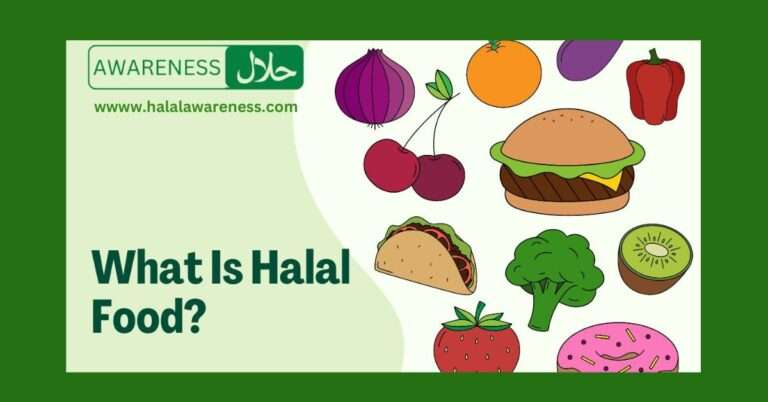Is Halal Food Healthy? Unveiling the Benefits and Considerations
🔥 The Truth About Halal Food and Your Health
When it comes to food, we all want what’s best for our health. But have you ever wondered if halal food is actually healthier? Many believe that halal food is cleaner, more ethical, and even better for overall well-being. But is there any truth to these claims?
✅ Quick Answer: Halal food is prepared according to Islamic dietary laws, ensuring cleanliness, ethical sourcing, and humane slaughter, making it a safer and healthier choice.
Beyond its religious significance, halal food offers potential health benefits that might surprise you. Let’s explore its impact on your well-being and whether it’s the right choice for you.
🔍 Understanding Halal Food: What Makes It Different?
The term “halal” originates from Arabic, meaning “permissible.” In the context of food, it refers to items that comply with Islamic dietary laws as outlined in the Quran.
These laws specify not only which foods are allowed but also how they should be prepared and processed to ensure purity and wholesomeness.
Key Principles of Halal Food:
✔ Permissible Ingredients: Halal guidelines allow the consumption of animals like cattle, sheep, goats, poultry, and certain fish. Prohibited items include pork and its by-products, blood, and any form of intoxicants such as alcohol.
✔ Humane Slaughtering Practices: Animals must be healthy at the time of slaughter and should be treated humanely. The process involves invoking the name of Allah and ensuring the blood is thoroughly drained from the carcass, as consuming blood is forbidden.
✔ Strict Hygiene Standards: From preparation to processing and storage, maintaining cleanliness is paramount to prevent contamination and ensure the food’s purity.
For a more detailed exploration of what constitutes halal food, you can refer to our comprehensive guide on What is Halal Food.

✅ Health Benefits of Halal Food: Why It’s a Smart Choice
Halal food isn’t just about religious observance—it offers several health advantages that make it a preferred choice for many.
🧼 1. Cleanliness and Hygiene: A Top Priority
Halal food preparation follows rigorous hygiene standards. All utensils, equipment, and preparation areas remain free from contamination, minimizing the risk of foodborne illnesses.
🐄 2. Ethical and Humane Animal Treatment
Animals used for halal meat are treated with care and respect. Since lower stress levels lead to better meat quality, halal practices contribute to a more nutritious and flavorful product.
🩸 3. Removal of Blood for Safer Meat
Since blood can harbor harmful bacteria and toxins, halal slaughter ensures complete drainage of blood. This makes the meat cleaner and safer for consumption.
🚫 4. No Harmful Additives or Preservatives
Halal food standards prohibit the use of certain additives and preservatives found in non-halal food. This means fewer artificial chemicals in your diet and a more natural, wholesome eating experience.
🌍 5. Sustainability and Ethical Farming
Many halal-certified producers focus on ethical farming, sustainable agriculture, and fair treatment of workers. This promotes environmental sustainability while ensuring better-quality food.

⚠️ Things to Consider When Choosing Halal Food
While halal food has clear benefits, there are some important factors to keep in mind:
- Nutritional Content: Just because food is halal doesn’t mean it’s automatically healthy. Fried and sugary halal foods should still be eaten in moderation.
- Certification Authenticity: Make sure that halal certifications come from reputable bodies to avoid mislabeled products.
- Dietary Balance: Incorporate a mix of fruits, vegetables, whole grains, and lean proteins to maintain a nutritious diet.
🏁 Conclusion: Is Halal Food the Right Choice for You?
The demand for Halal food has increased globally—not only among Muslims but also among those seeking cleaner, ethically sourced, and high-quality food.
Its emphasis on hygiene, humane animal treatment, and strict ingredient selection makes it a great option for a healthier diet. However, the overall health benefits of halal food depend on the choices you make.
Choosing fresh, whole, and minimally processed halal foods will provide the best nutritional advantages.
Incorporating halal food into your lifestyle is more than just a religious preference—it can be a step toward healthier and more ethical eating.
Whether you’re following halal dietary laws or simply looking for cleaner, high-quality food choices, halal-certified options can support your overall well-being.
Frequently Asked Questions (FAQs)
Q: Can non-Muslims benefit from consuming halal food?
A: Yes. Halal food's hygiene and ethical standards make it appealing to anyone seeking high-quality food.
Q: Are all vegetarian foods considered halal?
A: Mostly, but some may contain non-halal additives or risk contamination during preparation.
Q: How can I verify if a product is genuinely halal?
A: Look for certification from reputable halal certifying bodies on packaging or online directories.
Q: Does halal certification ensure humane animal treatment?
A: Generally, yes, but treatment standards can vary depending on the certification body.







